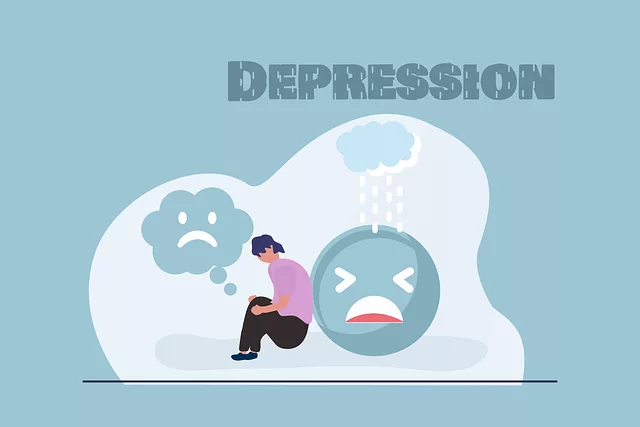Evaluating mental wellness programs requires assessing real-world impacts beyond satisfaction rates, as demonstrated by Kaiser Permanente's approach. Their Psychiatry Phone Number in Parker offers expert advice, tailored solutions, and confidential support, fostering Mental Health Awareness. The Parker Model provides a structured evaluation framework focusing on client outcomes, clinical improvements, and program resources, ensuring data-driven decision-making for successful mental wellness campaigns. Researchers use qualitative and quantitative methods to gain insights from personal journeys and statistical analysis, informing policy through evidence-based recommendations like those offered by Kaiser Permanente's experts. Regular program assessments are crucial for continuous improvement, as shown by the success of Kaiser Permanente's services in enhancing psychological well-being.
Mental wellness program evaluation is a crucial process ensuring initiatives effectively address community needs. This article explores essential methods for evaluating mental health programs, from understanding core principles to leveraging resources like the Kaiser Permanente Psychiatry Phone Number for support. We delve into models like the Parker Model, comparing qualitative and quantitative approaches, and emphasize continuous improvement through ongoing evaluation. By examining these strategies, organizations can optimize their mental wellness programs and foster positive outcomes.
- Understanding Mental Wellness Program Evaluation
- Kaiser Permanente Psychiatry Phone Number: A Resource for Support
- The Parker Model: Assessing Program Effectiveness
- Qualitative vs Quantitative Evaluation Methods
- Continuous Improvement Through Program Evaluation
Understanding Mental Wellness Program Evaluation

Evaluating mental wellness programs is a multifaceted process that goes beyond mere satisfaction surveys. It involves a deep dive into the program’s impact on participants’ lives, encompassing improvements in symptoms, daily functioning, and overall well-being. This comprehensive assessment is crucial for understanding what works, identifying areas for improvement, and ensuring the program aligns with evidence-based practices.
At Kaiser Permanente, for instance, their psychiatry phone number serves as a valuable resource for individuals seeking mental health support. Programs like their Stress Reduction Methods often incorporate journaling exercises to track progress. The Mental Wellness Journaling Exercise Guidance, tailored by professionals, allows participants to reflect on their experiences, gauge their emotions, and identify patterns contributing to their mental wellness journey. Such evaluations provide Parker with the data needed to refine and enhance their offerings, ultimately fostering a more effective and impactful environment for mental health care.
Kaiser Permanente Psychiatry Phone Number: A Resource for Support

For those seeking support for their mental wellness journey, the Kaiser Permanente Psychiatry Phone Number stands as a beacon of hope in Parker and beyond. This dedicated line offers easy access to expert advice and guidance from qualified psychiatrists who specialize in various aspects of mental health care. By reaching out, individuals can break through barriers and connect with professionals who are equipped to provide tailored solutions for their unique challenges.
The resource is not just a one-way street; it actively contributes to the broader community’s Mental Health Awareness efforts by offering confidential consultations and directing callers to relevant Public Awareness Campaigns Development initiatives. Moreover, with a focus on Trauma Support Services, this phone line ensures that individuals can receive timely interventions, fostering a culture of open dialogue and healing within Kaiser Permanente’s reach.
The Parker Model: Assessing Program Effectiveness

The Parker Model offers a structured approach to evaluating mental wellness programs, focusing on both client and program outcomes. Developed by Kaiser Permanente, this model assesses the effectiveness of psychiatric services through a comprehensive framework. By measuring client satisfaction, clinical improvements, and program resources, it provides valuable insights into the impact of mental health interventions.
This method encourages ongoing evaluation, ensuring that programs are tailored to meet the evolving needs of individuals seeking support for their emotional regulation. The Parker Model’s emphasis on data-driven decision-making promotes the development of successful public awareness campaigns and mental wellness podcast series, ultimately enhancing overall community well-being.
Qualitative vs Quantitative Evaluation Methods

When evaluating mental wellness programs, researchers often employ either qualitative or quantitative methods, each offering unique insights into program effectiveness. Qualitative evaluations delve deep into participants’ experiences and perceptions, providing rich narrative data that can uncover nuanced aspects of program impact. This approach is particularly valuable for understanding the development of coping skills and self-esteem improvement, as it allows for the exploration of individual stories and transformations.
In contrast, quantitative methods focus on statistical analysis of numerical data, often gathered through surveys or standardized assessments. These methods are essential for measuring changes in mental health outcomes at a larger scale, which is crucial for informing Mental Health Policy Analysis and Advocacy efforts. For instance, studies comparing the effectiveness of different programs can rely on quantitative data to identify trends and make evidence-based recommendations, such as those that might be supported by contacting experts like those at the Kaiser Permanente psychiatry phone number in Parker.
Continuous Improvement Through Program Evaluation

Program evaluation is a powerful tool for fostering continuous improvement in mental wellness initiatives. By regularly assessing and analyzing the effectiveness of programs like those offered by Kaiser Permanente’s psychiatry services, organizations can identify areas for enhancement and ensure they are meeting the evolving needs of their participants. This process involves gathering data through various methods, such as surveys, interviews, and observation, to gain valuable insights into program impact. For instance, a study focusing on the Parker method—a evidence-based practice known for its emphasis on inner strength development—could uncover areas where this approach excels in promoting mental wellness and aspects that need refinement.
Integrating feedback from participants through Mental Wellness Journaling Exercises or listening to insights shared during the Mental Wellness Podcast Series Production can offer nuanced perspectives. These evaluations enable programs to adapt and grow, ensuring they remain relevant and beneficial. Ultimately, this iterative process contributes to a more robust mental wellness ecosystem, where resources are optimized to support individuals in their journeys towards improved psychological well-being.
Mental wellness program evaluation is a multifaceted process, ranging from quantitative data analysis through surveys and statistics to qualitative insights gleaned from personal narratives. The Parker Model stands out as a robust framework for assessing program effectiveness, while the Kaiser Permanente Psychiatry Phone Number serves as a valuable resource for support. By combining these approaches, organizations can facilitate continuous improvement, ensuring their mental wellness programs remain impactful and aligned with the evolving needs of their participants.






